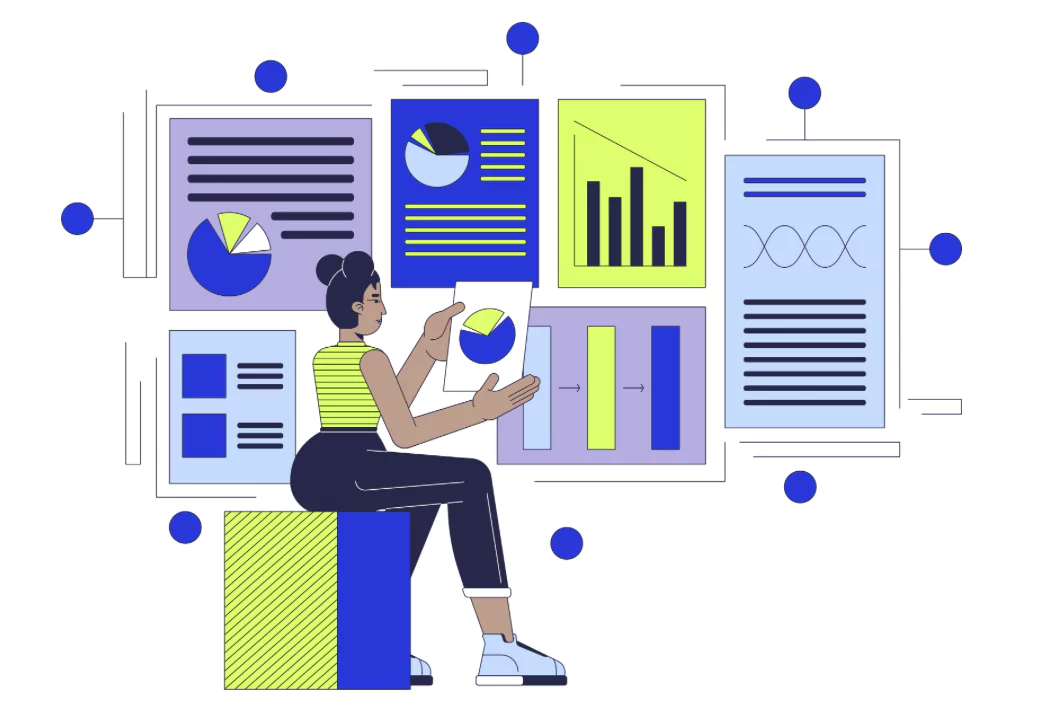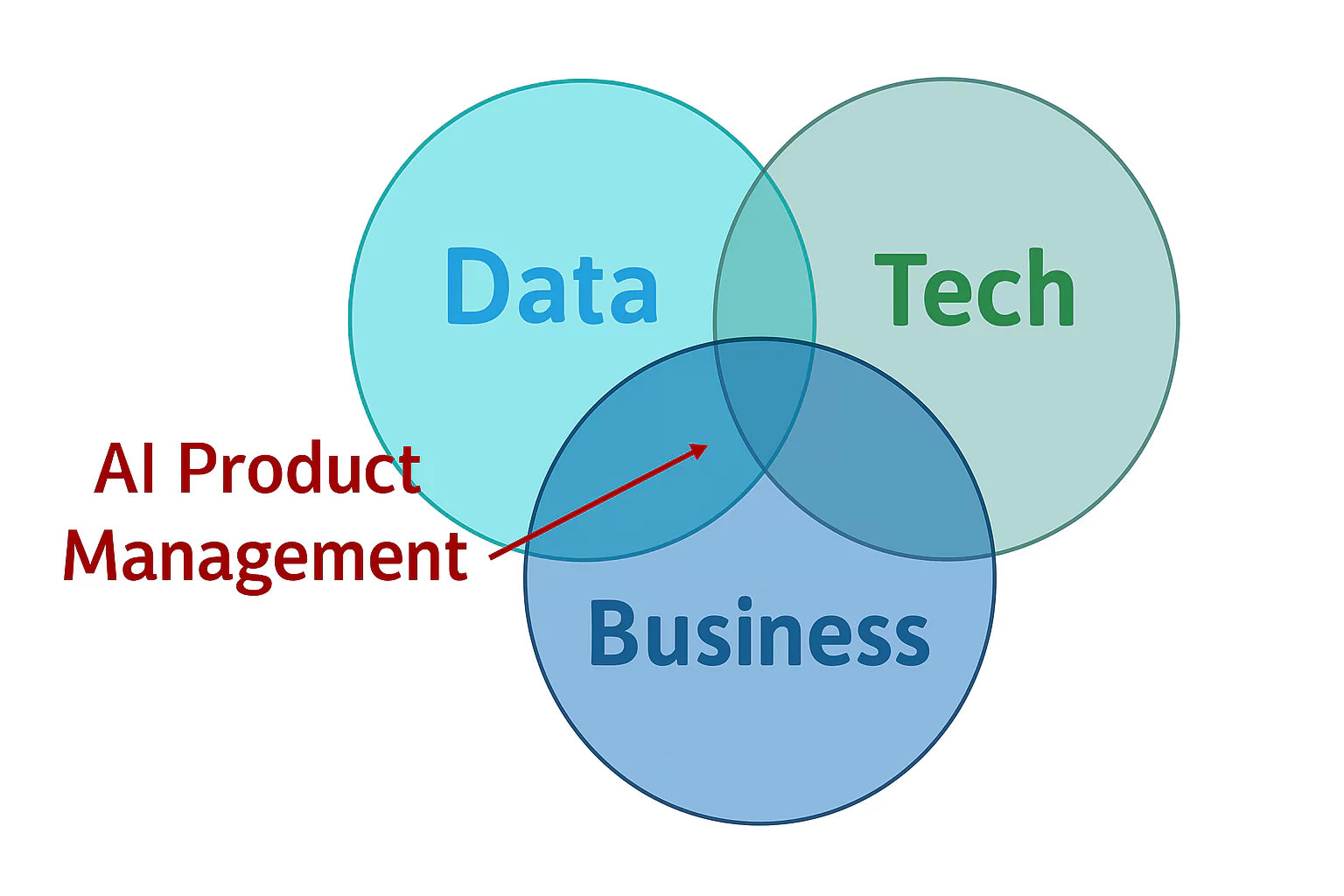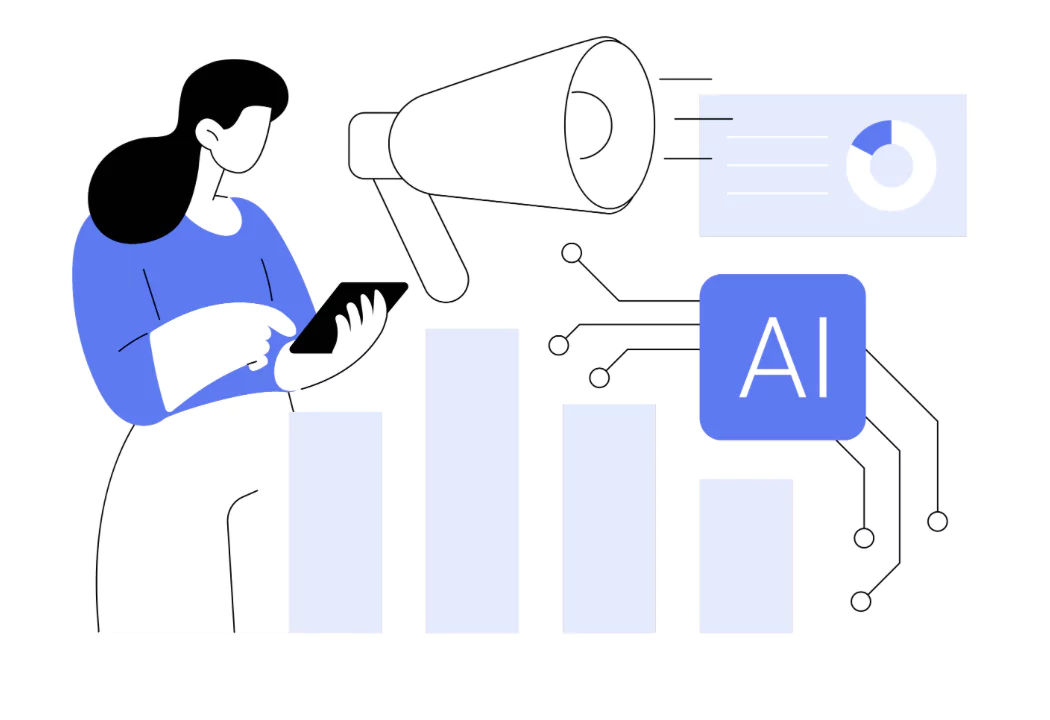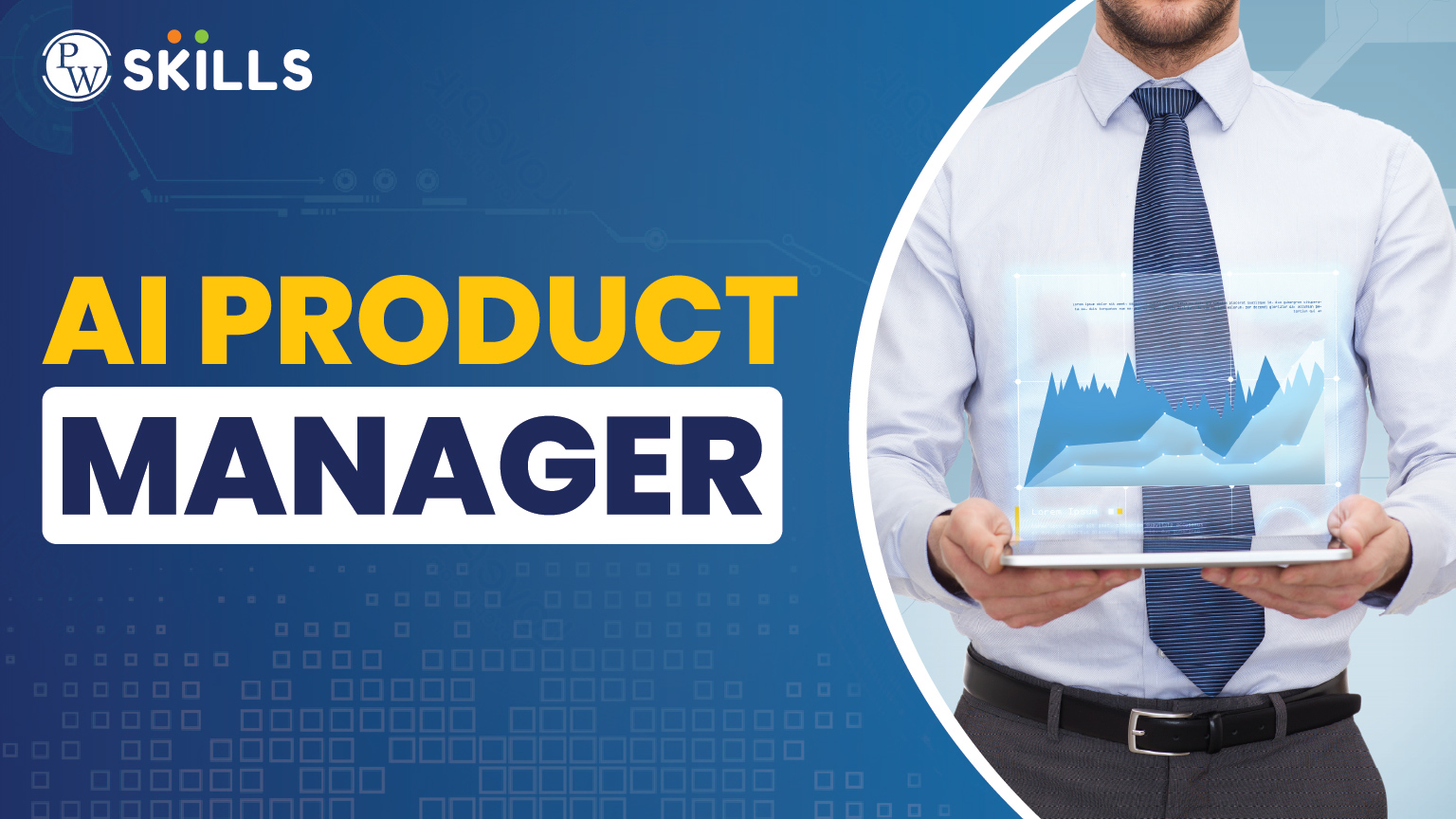The AI Product manager role is the new sensation of the product management field. They make AI practical, valuable and ensure it is ethical. With AI product managers businesses can make their workflow more effective, and productive. They can also automate the repetitive daily tasks, make scalability easier, and ensure smoother integration of AI in daily tasks.
AI product managers are proficient working with machine learning models. Large datasets, and collaborate easily with cross teams including developers, designers, engineers, sales, and more. In this blog, we will learn more about the role of AI product manager and importance in the current business scenarios.
What is an AI Product Manager Role?
AI Product manager is a specialisation of the traditional Product manager role responsible to look out for management and development of a product by leveraging the power of artificial intelligence. They are basically involved in building AI based products.

Unlike traditional product managers an AI product manager must have knowledge of both business requirements as well as the AI technologies to boost their productivity to maximum.
Leveraging AI with product management can help organisations drive competitional advantages and innovation in product making product managers more productive, adaptable, and create high performance products. With the power of Artificial Intelligence meeting market demands and exceptional user experience would be possible.
How Companies Leverage AI Product Managers?
Companies take help of AI product managers to turn complex AI technology into useful and real solutions that meet the customer needs and ensure customer satisfaction at its best.
- AI Product managers are helping companies find the right spot where artificial intelligence can solve problems, automate tasks, or create smarter user experiences for them.
- AI product managers act as a connector bridging the gap between different product teams and other teams, such as business, technical, data science teams.
- They ensure engineers understand their deliverables, stakeholders understand the powers of AI and their limitations. Basically they clear any sort of confusion related to product and AI integration with the product.
- AI Product managers keep their focus on collecting, processing, preparing high quality data for building the foundation of AI models and training them effectively.
- They also brainstorm on which of the regular or repetitive tasks can be automated or made more productive with the help of Generative AI.
- They guide teams to make their product scalable and cost effective.
- They monitor model behavior over time and give their best to improve products with artificial intelligence.
Read More: What are Product Demos and How to Use Them Effectively?
What is the Need of AI Product Managers?

Artificial intelligence is rapidly taking a core part in modern products and services and hence AI product managers have become essential for businesses to succeed while leveraging the power of Artificial intelligence.
- They tend to build better connections and collaboration with the tech and business team.
- They use the ideas from AI and turn them into usable efficient products.
- They ensure usage of AI is marked under ethical means ensuring no guidelines are unfollowed.
- They ensure proper training of models, updates, and improvisation.
- They win the trust of customers by ensuring faster service and quick resolution with the power of artificial intelligence.
The AI Product Management Venn Diagram
Product management is the intersection of three major domains including business, technology, and User experience. With AI we include data in place of UX designing.

1. Business
Product managers are responsible for maximizing the company value and product values in the eyes of stakeholders. They understand market needs, prioritise features to drive revenue and collaborate with multiple departments like marketing, finance, operations, and sales.
They ensure that all decisions are aligned with the business goals. Product success not only depends upon its features and technical capabilities but also depends on the business objectives to create profitability and scalability.
Read More: Product Analytics 101: Definition, Metrics & Tools
2. Technology
Product managers work with engineers and developers to build products from the starting to launching of the product. They are not directly involved with the coding but ensure all the technical operations are smoothly working, communicate with technical teams and make informed decisions with tools, platforms and features to prioritise in product development.
3. User Experience
This is one of the most important aspects of the product managers ensuring full customer satisfaction. They collect users feedback and conduct research using surveys, reviews, questionnaires to ensure product quality and usability with target audience. Also they collaborate with the UX designers to improve the usability and flow of the product.
They prioritise user needs and pain points making sure that they put this in improvisation to build a product which suits users the best in solving their real life problems. It is their duty to ensure that the product is accessible to everyone.
Here, AI integration in product management leverages the usage of data from various sources including collection, storage, transformation, analysis, and maintenance of data. These are the core concepts of AI Product.
Evolution of AI Product Manager
The role of an AI Product manager has evolved rapidly over the past decade with the advancement in artificial intelligence and growing business demands for automation, data driven products, and more. Before the Boom of AI in industries, product managers began integrating data for their crucial decision making. Early product managers started focusing on analytics, A/B testing, basic automation before 2015.
Now, with the emergence of AI models and products between 2015 to 2018 the machine learning, big data, and AI models became more accessible with companies building features like chatbots, recommendation engines, predictive tools, and more. After 2018, AI product managers became a specialised role in many tech companies like Google, Amazon, and other companies working on their AI products.
After 2021, Product managers leveraging the power of Artificial intelligence were expected to focus on building Ethical AI ensuring transparency in AI decision making, aligning AI features and more. And at the present time AI product managers are leading product AI strategies designing entire products with AI features, working on scalability using AI and collaborating with different powerful AI.
AI Product Manager Skills
Let us check some of the major skills required by the AI Product managers below.
- AI/ML Fundamentals
- Data literacy
- Model Evaluation
- API
- Product Management Skills
- Business & Analytical Skills
- Ethical Awareness
- Communication
- Critical Thinking
- Problem Solving
These are some of the major skills required for the role of AI product manager. However, going further it depends on organisations needs and experience requirements of the companies which decides the major skills required for the role of AI product manager.
Roles and Responsibilities Of AI Product Manager
The specific responsibilities of an AI product manager can be different based on organisation, use cases, and more.
1. Contribute In Product Market Success
They work with different teams such as marketing, development, designing teams to launch the product. The marketing team contributes the most while launching the product overseen by AI product managers. They oversee the entire product throughout the development time.
2. Managing Product Backlog
They manage the list of product ideas by breaking down the backlog into bite sized pieces and ensuring quickest resolution of the users pain points or suggestions through feedback and other sources of reviews. They also ensure that the product backlog is understood and transparent. Prioritisation is kept on backlog items.
3. Focus on Bigger Picture
They conduct research on AI based on the industry specific trends in the market. They focus on opportunities in artificial intelligence, machine learning and advanced analytics to solve specific needs related to the organisation product.
They keep their focus on compelling product vision and deliver product increments for improvements using the best agile practices including Scrum methods and more.
4. Define AI Product Vision and Strategy
The AI product manager shapes the direction and future related to Artificial intelligence and how the organisation is integrating AI into their products. They also set clear goals for the product mentioning the clear differences in achieving the desired outcome with AI.
Between the processes brainstorming is done to make sure whether AI is the right solution and how to apply it in the proper way in the product development process.
5. Collaborating with Cross Functional Teams
All product managers coordinate with cross teams such as engineers, data science, design, business teams, and more. They make it easier for the other teams to integrate AI tasks or tools in their deliverables.
6. Oversee AI Model Training
AI Product managers are also responsible to oversee the decisions regarding AI models, keep track of how AI models are developed, trained, and iterated. They make sure that the product meets the business needs, are legal and all the compliance policies.
7. Scaling AI Products
They gather user feedback, make improvements and take decisions to ensure the product is scalable, cost effective and performs better in even adverse conditions.
What is The Manifesto of AI Product Management?
The AI product management takes strong beliefs on the guiding principles of AI product managers making sure that they work in a responsive and effective manner to bring up AI powered solutions to their lives.

The complete philosophy is based on AI servers, people, businesses, and society ensuring AI reaches all and makes lives better. The manifesto also focuses on these important points.
- AI should solve real problems for real people where product managers prioritise user value and business impact.
- Quality data is important which forms the basis for AI based product management, and scalability in every important decision.
- AI product managers acknowledge that all data carries the interest of each group of people. Fairness is very much important.
The major objective overall is building AI products with purpose, responsibility and integrity where people are at the center of the development decisions. Some of the frequent questions which an AI product manager must resolve are
- The perfect launch time for your product either go for first-gaining advantage in the market or wait for the product to get into its finest form.
- Analysing the request of stakeholders and making sure the feature requested is feasible and fruitful in the product.
- How much planning is sufficient to start with the product in the first phase.
Product managers can plan a specific course of actions and guidelines to manage each task on a daily basis.
Also Read:
Product Line : Meaning, Types, Advantages, Disadvantages and Working
What Is Product Failure? Definition and Prevention Tips
New Product : Concept, Importance and Challenges
Product Specs | Definition and Overview
Learn Product Management With PW Skills
Become a master in Product management with PW Skills complete Product Management Course. Get engaged in interactive learning modules, real world capstone projects, doubt solving sessions, career support and much more. This program gets you through an easy roadmap for getting job ready skills and hands-on learning.
Get an advanced in depth learning completely based on smart agile methodologies and conduct strategic planning, market analysis, and more to maintain product market fit.
Still Not Enough?
- Prepare for your interview with guidance from dedicated mentors
- Get dedicated resume building sessions with mentors.
- Get industry recognised certifications and discover a wide range of opportunities in Product management only at pwskills.com
- Build a job ready profile with PRD from the scratch and work on a capstone project to strengthen your portfolio.
AI Product Manager FAQs
Q1. Who is an AI Product Manager?
Ans: AI Product manager is a specialisation of the traditional Product manager role responsible to look out for management and development of a product by leveraging the power of artificial intelligence.
Q2. What is the responsibility of AI Product managers?
Ans: AI Product managers are responsible to build and manage AI products. They communicate and collaborate with cross teams to ensure product delivery on time.
Q3. What are the skills required to become an AI product manager?
Ans: You will need to have technical skills, product management skills and strong communication skills to become a skilled AI product manager.
Q4. How to get an AI manager Job?
Ans: You have to start with the basics of AI and machine learning followed by hands-on experience using AI. Along with product management you have to understand how AI can develop more effective and reasonable products.

